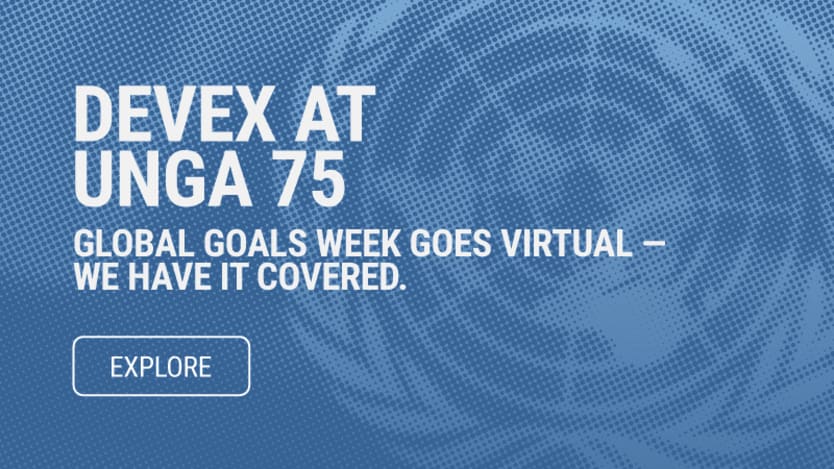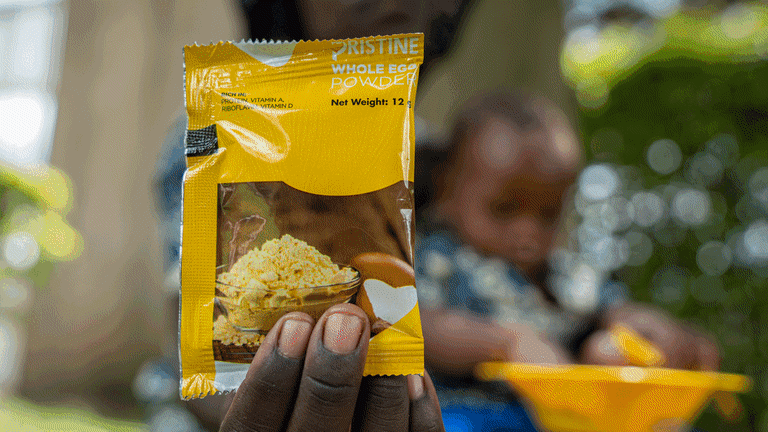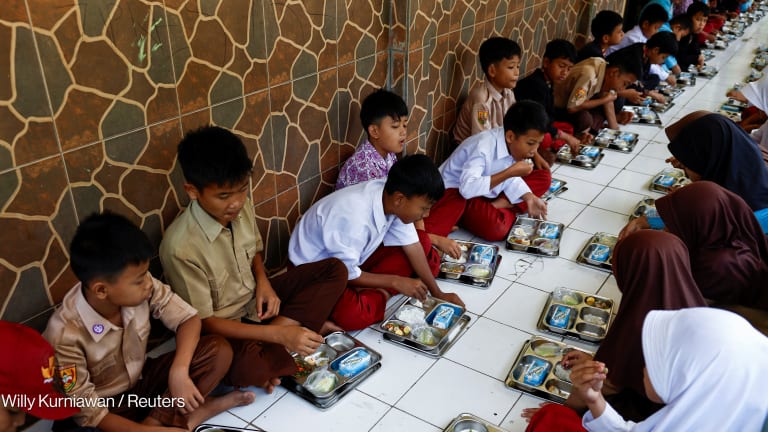NEW YORK — The COVID-19 pandemic could offer a once-in-a-lifetime opportunity to equalize education for children worldwide — or it could lead to many children never returning to school following countrywide lockdowns, according to Henrietta Holsman Fore, executive director of UNICEF.
Fostering equitable access to digital learning and technology is key to closing the widening gap between school children worldwide, Fore told Devex Editor-in-Chief Raj Kumar in a recent interview leading up to the opening of the United Nations General Assembly.
“There are vast inequalities, and that is what COVID has shone a light on. We are a very unequal world. Half the world is not connected, and right now we’ve got at least half the world’s children out of school. So it’s those children we need to reach. We need to reach them now,” Fore said.
“The longer they stay out of school … they may never return to school. And for many children who are on the move — let’s say, coming out of conflict — they don't have a school to return to. So if we want that other half of children returning to school, we’re going to have to be very proactive,” Fore continued.
Widespread lockdowns and school closures during the height of the pandemic in April impacted more than 1.5 billion schoolchildren, or more than 90% of the world’s student population in 200 countries, according to UNICEF. But as lockdown measures have eased, many schools have not adapted their curriculums and procedures for health risks and social distancing protocols.
“Let’s see if we can’t create a level playing field for this next generation. ... This is a generation that wants to be online, so let’s help them.”
— Henrietta Holsman Fore, executive director, UNICEFA recent UNICEF survey found that one-fourth of countries did not have specific dates for when children would return to school, Fore said. She described the sudden loss of education — and slow pace of recovery — as “shocking.”
“I think many families and children are not sure about their own schooling timing. And one of the needs that all of us have now is that there are settings that have low technology or no technology and others that do have the technology but they don’t have school systems and curriculum that can easily be downloaded or that can be downloaded affordably for everyone,” Fore said.
At least 31% of children who are out of school cannot access remote learning, according to UNICEF, which launched an initiative in the spring to close the digital divide.
“We could come out of the time of COVID-19 stronger as a world. … It’s a once-in-a-generation moment. We can really leapfrog the technologies, and let’s see if we can’t create a level playing field for this next generation. It will be an extraordinary gift for them, because they want to connect. This is a generation that wants to be online, so let’s help them,” Fore said.
UNICEF has also been focused on immunizations, water, and mental health during the pandemic, she added.
Fore described the race for an effective and safe COVID-19 vaccine as moving “at an extraordinarily fast pace.” But she expressed concern about people’s willingness to accept an eventual vaccine, especially given the drop-off in health care access during the pandemic.
Q&A: Henrietta Fore's biggest concerns about coronavirus and children
UNICEF's executive director discusses the pandemic's effect on young people and her agency's engagement with faith leaders to improve children's well-being.
“So what’s happening in our world is that families are not coming in for basic health care services. And it can be mothers who are pregnant — they’re not coming in for prenatal care, they’re not coming in for postnatal care. [In] most countries, it’s completely disrupted, and it’s because you’re often afraid to go into a facility [and] think you’ll catch COVID,” Fore said.
Public transportation interruptions and overburdened health care workers are two other challenges to overcome.
“[Health care workers are] either inundated at their facilities, or they are worried that they don’t have protective equipment, or they are feeling that they can’t do their usual door-to-door, in-person work,” Fore said.
Fore highlighted the need to increase public awareness campaigns for vaccines and the importance of continued health care.
“We need to have populations say: ‘Yes, vaccines work. I’m going to take my children in for them. I’m going to go in and be vaccinated myself.’ So it’s going to be very important that we also talk to populations, to the people,” Fore said.









